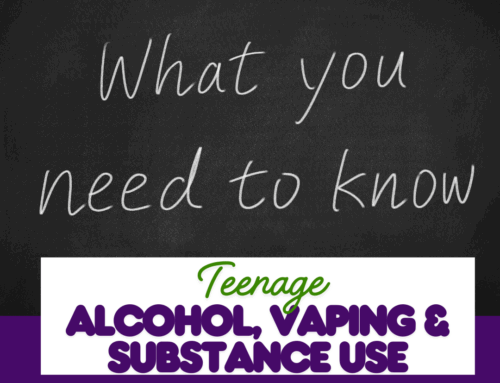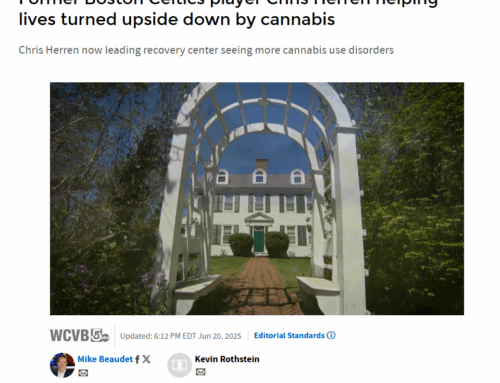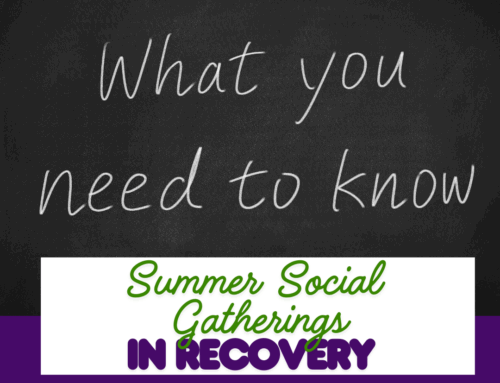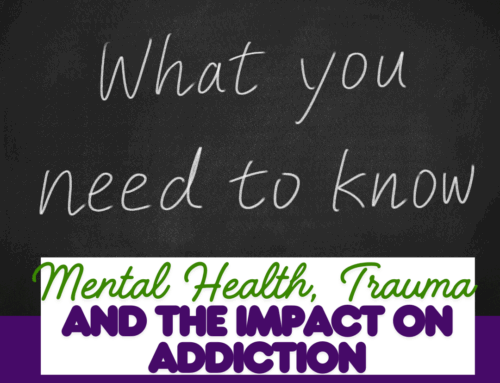 This is a joyful and stressful time of year, and people in recovery take extra precautions to manage stress, but those diagnosed with co-occurring Seasonal Affective Disorder (SAD) can find the winter months especially challenging. It is important to be mindful of the symptoms of SAD, be proactive about getting help, prioritize self-care, and protect your recovery.
This is a joyful and stressful time of year, and people in recovery take extra precautions to manage stress, but those diagnosed with co-occurring Seasonal Affective Disorder (SAD) can find the winter months especially challenging. It is important to be mindful of the symptoms of SAD, be proactive about getting help, prioritize self-care, and protect your recovery.
What is Seasonal Affective Disorder?
Seasonal Affective Disorder is a type of seasonal depression that can appear during the long winter months and is triggered by the changing of seasons. According to the National Institute of Mental Health, more than 20 percent of people diagnosed with a mood disorder, such as seasonal affective disorder, also have a substance use disorder.
Symptoms usually begin in late fall or early winter, and it is believed to be tied to the amount of daylight during different times of the year. Because there is less daylight during the winter months, people who experience the depressive symptoms of SAD may not have symptoms of depression during the balance of the year (although people with depression are more prone to SAD).
Between 4% and 6% of people in the United States experience SAD, and another 10% to 20% experience it in a milder form. It is more common in women than men, and in northern regions of the United States where winters are typically longer and harsher.
What are the Symptoms of Seasonal Affective Disorder?
Not everyone who has SAD experiences the same symptoms, but common symptoms of winter-onset SAD include:
- change in appetite, especially craving sweet or starchy foods
- weight gain
- fatigue
- sleeping more than normal
- difficulty concentrating
- irritability and anxiety
- increased sensitivity to rejection
- avoidance of social situations
- loss of interest in the activities you used to enjoy
- feelings of guilt or hopelessness
- physical problems, such as headaches.
Seasonal Affective Disorder and Recovery
Seasonal Affective Disorder can be especially challenging for those in recovery, especially early recovery when you are likely already working through more intense emotions. SAD can increase stress levels, intensify depression, and increase the risk of relapse.
Many people in recovery with co-occurring SAD are at risk of isolating themselves during this time of year. Isolation often results in increased feelings of sadness, depression, and loneliness, which intensify the symptoms of SAD and also increase the risk of relapse. Thankfully, there are several ways to treat SAD and protect your recovery.
Any new or worsening symptoms of depression can be an indicator of SAD, and even if you haven’t been diagnosed with SAD before, it may be because symptoms were numbed by active use of drugs and/or alcohol. It’s vital to talk to your support network, as well as your primary care physician and/or therapist, about any signs and symptoms you are feeling.
Treating Seasonal Affective Disorder
Talk to your doctor. Because SAD is a form of depression, it’s best diagnosed by a medical professional. Your doctor will be able to sort out whether you have SAD or some other form of depression.
Talk with a mental health professional. Talk therapy and/or behavioral therapy (such as Cognitive Behavioral Therapy) can help you identify and treat SAD, provide you an outlet to talk through feelings of depression, and learn healthy ways to manage your symptoms. A mental health professional can also help you determine whether exploring medications like anti-depressants is a good idea. Be sure to share with any professional – mental health or medical – that you are in recovery so they can best advise you about safe medications.
Light therapy. A light therapy box gives off light that mimics sunshine, is significantly brighter than that of regular light bulbs, and in wavelengths that are closer to those of natural light. Sitting in front of this specialized lightbox for at least 30 minutes a day stimulates your body’s natural circadian rhythms, which in turn eases the symptoms of depression.
Aromatherapy. Essential oils help relieve the symptoms of SAD by influencing the olfactory part of the brain associated with memory, emotion, and the autonomic nervous system (heart rate, breathing rate, blood pressure). They can also help with controlling mood, sleep, and appetite. Lavender, orange, bergamot, jasmine, and poplar tree essential oils have been shown to be particularly effective in treating the symptoms of SAD.
Get moving. As it does with all forms of depression, even mild exercise can help alleviate seasonal affective disorder. Outdoor exercise during the daytime, to increase exposure to natural light, is the most helpful. If exercising outside isn’t possible a treadmill, stationary bike, or elliptical machine close to a window at the gym is also helpful. The idea is to get your heart rate up for at least 20 minutes per session to release your body’s natural dopamine and serotonin, which in turn improves mood (as well as helps you get/stay fit and healthy).
Maintain a predictable sleep schedule. SAD often causes trouble sleeping at night, and difficulty getting up in the morning. Maintaining a regular schedule improves sleep patterns, which help alleviate the symptoms of any kind of depression, including seasonal affective disorder.
Increase Vitamin D. Vitamin D levels in the body fluctuate with the changing seasons in response to available sunlight, and Vitamin D supplements may improve depressive symptoms and overall mood.
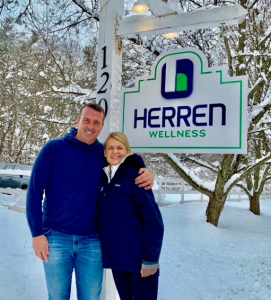 About Herren Wellness
About Herren Wellness
We stand side-by-side with our guests as they do the hard work of looking at unhealthy patterns and behaviors and help them build the tools and skills they need for a sustainable and healthy recovery.
We work with guests to rediscover their purpose, passions, and strengths. We build self-care and mindfulness skills to help guests become aware, live fully present in their lives, and treat themselves with loving-kindness. We also provide the tools needed to establish healthy habits and patterns like fitness, healthy sleep hygiene, and proper nutrition. We help guests uncover and experience the things that bring joy, meaning, and purpose to their lives.
If you, or a loved one, are looking for help, please call us at (844) 443-7736, email us at info@herrenwellness.com, or fill out a contact form. You are not alone.


